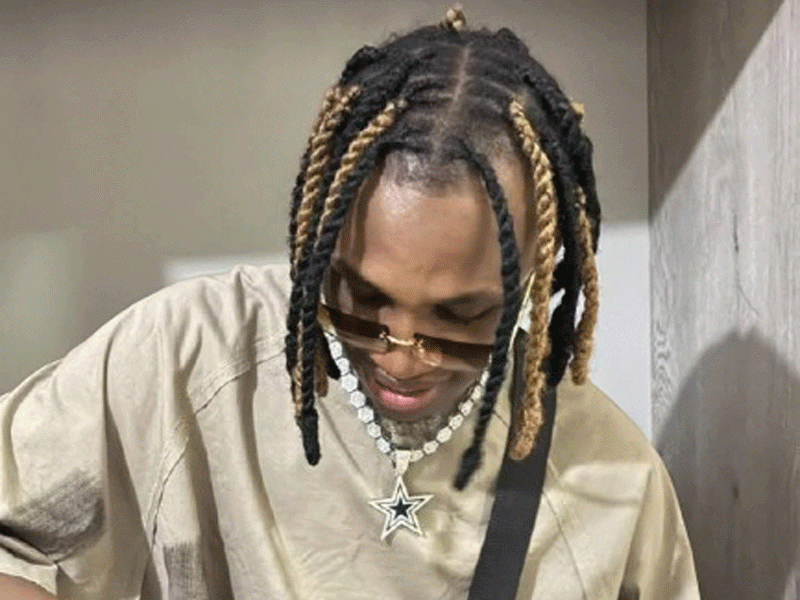
in the groove:with Fred Zindi
This week, I encountered yet another relatively famous musician as I was cruising down Samora Machel Avenue. He was selling his latest CD to the public in the middle of traffic near Jameson Hotel. His dreadlocked head was glued outside my window as he was pressing his colourful CDs against the open window: “Elder, you haffe support your likkle yutman, seen. Buy one CD for a dollar or give me 50 bond,” he quipped in fake Patois (Jamaican accent).
I said to him: “Man, you are a celebrity. You should not be seen by the public who worship and adore you reducing yourself into a CD vendor like this.”
“Tru dat, but I and I haffe find a way to survive since Babylon a ban live gigs, which were my source of income,” was his response.
I suggested to him that he should post his music on YouTube and advertise it on facebook and Instagram so that the public could buy it through those platforms.
Alternatively, I said, he could contact Jive Music or Oyo’s Music for distribution.
“Me no know how fe do dat. Dat is technology, init?” he said.
Indeed in this Covid-19 situation, musicians have to be tech-savvy in order to market their products.
- Chamisa under fire over US$120K donation
- Mavhunga puts DeMbare into Chibuku quarterfinals
- Pension funds bet on Cabora Bassa oilfields
- Councils defy govt fire tender directive
Keep Reading
However, most of them have no idea how to go about using the digital platform to market themselves. Some do not even have the resources to know where to start. But the need to learn how to do so is more urgent than ever before, otherwise they will be left stranded.
It’s an awkward phenomenon that now pervades a growing cross-section of industries, a type of techno-solutionism that’s unbearable because it insistently capitalises on quick fixes for problems that didn’t exist before Covid-19. It’s also a disadvantageous mutation of principles that marketers have historically leveraged to make us feel bad about ourselves if we don’t go on their online platforms so that we’ll buy more stuff we don’t need. It is all of these things, and it is also becoming the operating motive of the music industry. Gogo in the rural areas wants to buy her favourite Jah Prayzah record. She must have a cellphone or an iPad and know how to operate it in order to pay for and download the music. Do you think that if she doesn’t know she will bother? Ridiculous, but this is what the digital age is all about.
The music world continues to be exceedingly vulnerable, and there are looming questions that desperately need to be addressed. Most important: Seeing that record shops (where artistes used to be focused on placing their products in the brick and mortar stores) don’t exist anymore, how can artistes distribute and sell their work in a digital economy beholden to ruthlessly commercial and centralised interests?
Three years ago, Pearson Pfavayi, a Zimbabwean entrepreneur of Oyo’s music, entered into a partnership with Star FM and signed up many artistes with a view to digitally distributing their music through online platforms. Artistes signed on include Tammy Moyo, Sandra Ndebele, Pastor G, Tocky Vybes, Guspy Warrior, Killer T, Shinsoman, Ngoni Kambarami, Michael Mahendere, Ex Q, Tatenda Mahachi, Diana Samkange, Janet Manyowa, Kinnah, Suluman Chimbetu, Somandla Ndebele, Mathias Mhere, the late Andy Brown, Thomas Mapfumo, Seh Calaz and Freeman, to mention only a few.
Before that, another organisation, Jive Zimbabwe, founded by Benjamin Nyandoro, had also created an online platform for music distribution. Its artistes included Soul Jah Love, Extra Large, Jah Prayzah and many others.
The platforms these players created in the Zimbabwe music industry are meant to combat piracy and make musicians benefit from their own products.
But are these platforms they created easily accessible to their fans and customers? If they were, Pfavayi and Nyandoro would be millionnaires by now because the bottom line behind this creation is to make profitable business.
These platforms have manipulated the vast majority of music industry “players” into regarding it as a saving grace. I am yet to get figures from them on the amount of royalties paid to individual artistes in order to verify if their businesses are doing well. Gone are the days when Record and Tape Promotions (RTP), Gramma Records and Zimbabwe Music Corporation (ZMC) would distribute large sums of money in royalties which would enable upcoming musicians to buy houses within a year. Music fans would simply walk into a record shop and buy a record of their choice. There were no mobile phones or digital platforms which required consumers to pay for wi-fi and download their chosen songs. It was easy. I am not sure why the record shops have disappeared, but with the economy of Zimbabwe being on a downward trend, unemployment and hardships included, closing down of such“luxury” businesses is understandable.
The Zimbabwean online platforms are not alone in this game. As far back as ten years ago, Apple‘s iTunes and Amazon were already exploiting the mobile platforms internationally. Today, other players include Sound Cloud, Audiomack Band Camp, Vimeo and Tidal.
For Apple Music, the bottom line is selling iPhones, laptops, iPads and other hardware created by the same company. Streaming music makes those products more valuable. One cannot download the music without these gadgets. Billions of dollars are made this way. For Amazon Music, the motive is similar: they aim to sell Alexa devices and Amazon Prime subscriptions.
Enter Spotify. As of September 2017, Spotify, which also distributes music on line, has been valued at $16 billion by venture capitalists who see it as the next Netflix, and who have perhaps fooled themselves into trusting that this exploitative model will “save” the music industry. Spotify’s end-game is to be listed on the New York Stock Exchange, which has already happened.
Yet, despite its conventional market viability, there are key differences between Spotify and its rivals, Apple Music, Amazon Music and the rest. Spotify’s worth is more ephemeral. Its value — what makes it addictive for listeners, a necessity for artistes, and a worthwhile investment for venture capitalists — lies in its algorithmic music discovery “products” and its ability to make the entire music industry conform to the new standards it sets.
I have no qualms with this kind of marketing. My only bone of contention is how the musician will benefit from all this especially if he/she has no knowledge of how it all works. These companies have presented themselves as hip, huge, harmless and out to help musicians gain lost ground, but like all businesses, they are hungry for profit. They’re shark-like. They just eat up everything by taking all of the world’s creations, digitize them and offer them back to humanity either for free or for an incredibly low price. Some of them massively underpay the creators, and just kick back and put their feet up, knowing that if Tocky Vybes, Rocky or Soul Jah Love doesn’t like it, well that’s fine, because there are thousands of other musicians lined up behind Tocky Vybes, Rocky or Soul Jah Love who are perfectly happy to volunteer their music to exactly such a scheme in hopes of doing something greater than being a CD vendor their whole life.
I want to believe that it’s not too late to beat the greedy sharks. To give you an example of how music makes money, according to the New York Times, Spotify has just signed a lease for 14 floors at Four World Trade Center in New York. The company has gone on to hire an additional 1 000 employees. The new lease costs US$2.77 million in monthly rentals. And it lasts until 2034.
Zimbabwe could also look at how to digitally enhance the marketing of its music products. Furniture outlets such as Coloursel whose principals are already in the music business could add music outlets to their brand and make music shopping easier for would-be consumers. That way this would help to “Bring Back The Good Old Record Bars!”
l Feedback: frezindi@gmail.com










